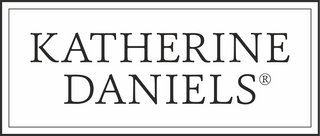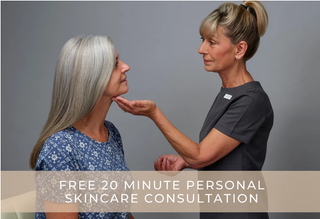
By Kirsti Shuba
Your At Home Facial
Better skin for Life is in your hands...
Long, dark winter evenings are here, take time for an at home facial to keep your skin glowing throughout the dullest days of the year.

Step 1
Cleanse
Start with Essential Micellar Face & Eye Make-Up Remover to sweep away make-up. Follow with your favourite Katherine Daniels cleanser for a double cleanse:
- Your first cleanse removes make-up.
- Your second cleanse deeply cleans your skin (remember your neck and décolleté). Remove with a super soft Micro Cloth, it’s quick, efficient and won’t scratch or irritate your skin.

Step 2
Tone
Use a cotton pad with Essential Toning Lotion to perfect your cleanse and restore your skin’s pH. It’s soothing, hydrating and readying your skin for what’s next.

step 3
Exfoliate
Apply Essential Exfoliating Gel to your face, neck, and décolleté. Wait for a minute as it melts into a silky oil, then massage to lift away dead cells.
Want deeper exfoliation? Use the Deep Cleansing and Exfoliating Disc or your Deep Cleansing & Skin Rejuvenating System.
Rinse thoroughly with your Micro Cloth.

step 4
Massage
Treat your skin to Nurturing Night Balm.
Start at your décolleté, moving upward to lift and smooth. 5 minutes is perfect, a few extra minutes is pure indulgence.
Remove any residue with a damp Micro Cloth.

Step 5
Mask
Apply your mask to clean, dry skin, aim for full coverage. Relax for 2–15 minutes depending on your choice of mask.
Remove with a damp Micro Cloth and enjoy the glow.

step 6
Boost & Defend
Finish with your favourite Skin Boost and Skin Defence products:
- Concentrate
- Global Eye & Lip Care
- Your favourite treatment cream


